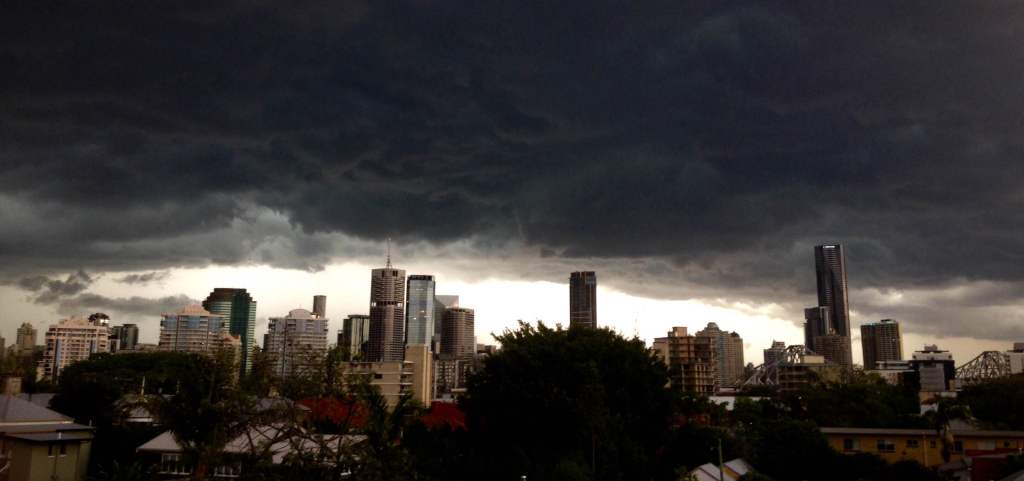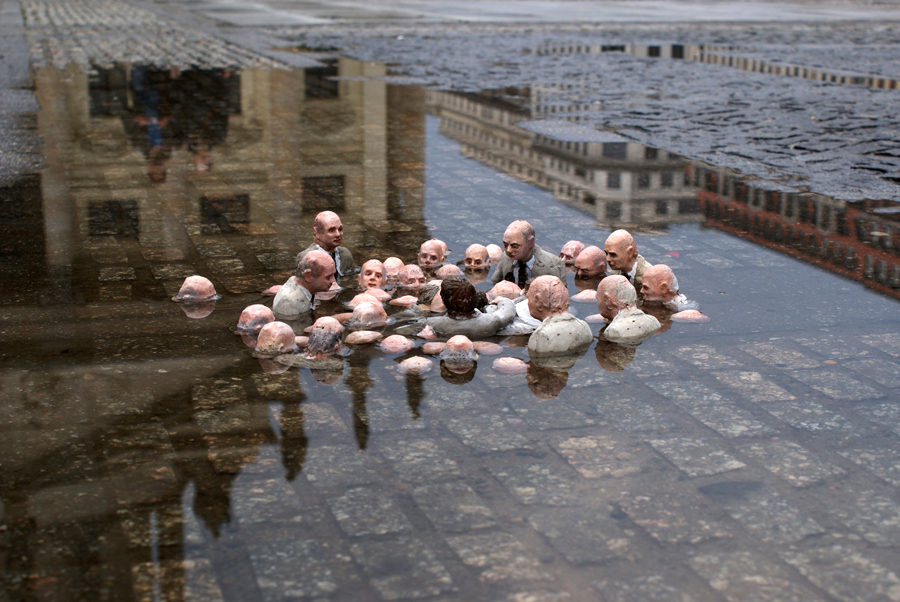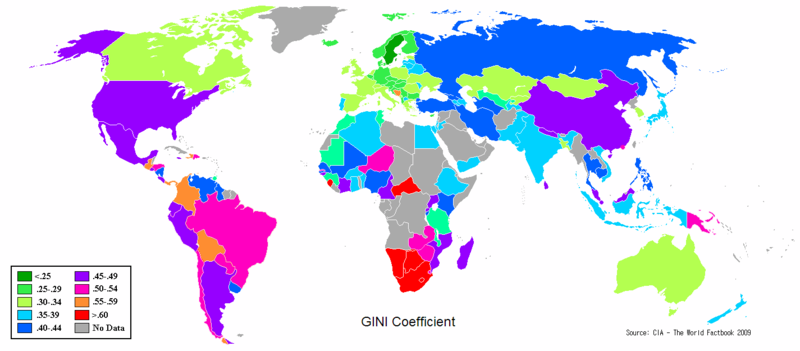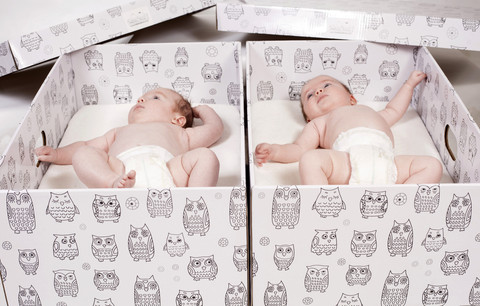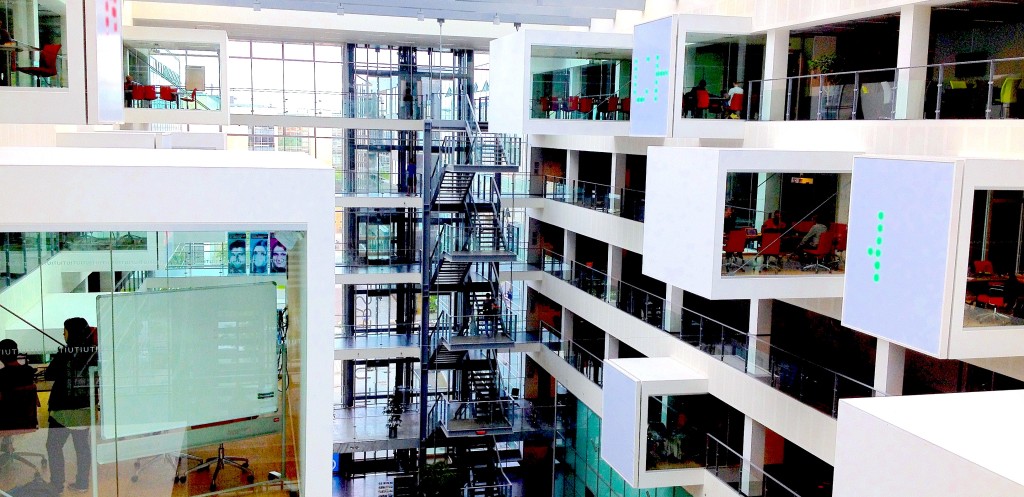Michael Leunig wrote these 4 words 7 years ago, and they resonate even more today. Becoming bound up by ideal modes of being. Agitating over status, appearance, performance. Hiding beneath narcissistic farces, so shiny and impenetrable, idiosyncratic realities are smothered, vulnerabilities denied…
A friend told me recently that she liked vulnerable people.
My immediate response was to wonder at the kind of creeps I keep company with, but I’m coming to appreciate her more and more. When a colleague admitted that interviewing people terrified him I immediately sympathised ‘Me too!’  When a friend told me she was homesick a sleuce of, until then, unarticulated feelings opened up to meet hers and our sharing deepened the experience, our friendship. I secretly admired their courage, their self assuredness in their imperfections. Being vulnerable gives you the chance to connect with people. Being attractive invites adulation and isolation. Vulnerability is something I inadvertantly seek in others, but am rarely willing to reveal. I want to be admirable and relatable. Have and eat my cake.
Leunig’s essay on pressure to be attractive expresses this in his peculiarly beautiful way. It’s so perfectly imperfect I’ve posted it word for word.
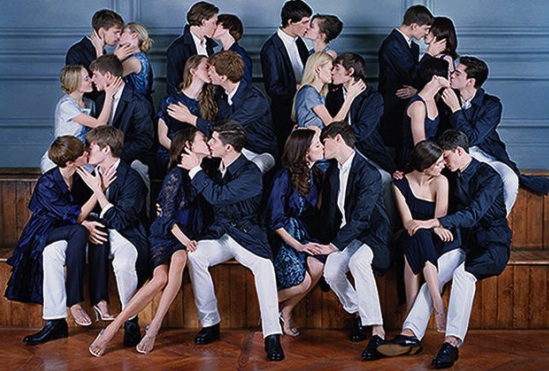
Aquascutum 2009
Cringing with shame, the homely run the gauntlet of our streets.
Huge banners of the dictator line the freeway where I dodge hurtling trucks, frantically searching for the lane that leads to the road that leads to the peace and safety of home. These same photographic images I have also seen in the streets of the city from which I am in weary flight – images of power looming over the streets and byways to remind all citizens of the great dictator’s supremacy and fierce determination.
The images are huge, and to carry them, steel structures have been built along all the busy human passageways of the city so that the hearts and minds of citizens must run the gauntlet of the dictator’s taunting and insincere gaze.
The dictator has youthful skin and often wears no trousers – or else has them slightly undone to reveal a very fine and enigmatic pair of underpants. And how lurid the swelling of the tyrant’s lips; how compelling the soft bulging of the dictator’s warm and sumptuous breasts.
The limbs are long, smooth and airy, the smile is loaded and the eyes wide with promise, while the buttocks, lightly bound in scraps of rich lace or dark silk are presented like some dazzling and exotic wisdom to the passer-by whose sullen buttocks cringe in the darkness in shame and pale despair.
There is no escaping the image of the great tyrant – and no refuge from the dictator’s dire commandment: Thou shalt be attractive.
By this, the dictator means attractive in any of its many forms: charming, strong, good-looking, successful, groovy, brilliant, amusing or rich – so long as one is also feeling not quite attractive enough and not really quite good enough.
The citizens tremble at the thought of failure and rejection. It keeps them busy and subdued like slaves. How they run for the tyrant, how harshly they judge themselves and each other; how picky and bitchy and hypercritical they are as they fret about status, appearance, performance and 10,000 other little compliances.
It is difficult to imagine any time in history when so many people claiming to be so free have lived in so much fear of being unattractive.
See the young girl in her room; she is looking at herself in the mirror; she is alarmed because she thinks her bottom is too big. She will have to go without food and fret and make it smaller. See the man.
His hair is going grey; he must soak it in chemical pigment or be cast into the abyss. And the worried woman. Her face is sagging and creasing; she must have it injected with lies and smooth deceptions to make her feel good about herself. Somehow love’s promise seems to have failed her.
The French have a phrase for such human tragedy: “mal baiser”, meaning to kiss badly, or more poetically, “to be badly loved”. I think perhaps that modern humanity is badly loved.
Ah, that old subject that brings us into ridicule. To be loved surely means to be known and emotionally held and to be taken seriously for who we really are. To love means to clearly see and to know, to be attentive and open to; to engage with the truth of, to bear and take to heart. Not just another person but all creation as we find it.
But we would need to know and reveal who we are before love could exist, otherwise there is no organic ground for real engagement. Yet such a precondition for love, such revelation and intimacy, would create a vulnerability that many would find unbearable. Fear of intimacy being more powerful, it would seem, than fear of terrorism.
“The more I reveal myself the less you will love me” is the prevailing maxim.
So we must not only maintain the false self as a natural defence, but we are now given the opportunity to develop it as an asset.
The company executive learning the hand gestures and the shit-eating smile, the writer collecting the language of cool, the singer correcting the human voice on a computer, the anxious young man adopting by osmosis those winning looks, winning words and winning moves – all compulsively smoothing out peculiar wrinkles or divesting the personality of unique and embarrassing characteristics in the name of aspirational self-improvement. Learning how to make it look like the real thing – anything to stave off the thought of abandonment and oblivion in an unforgiving world.
It gets particularly bad when artists, the traditional keepers of authenticity, begin to paint pictures that look so much like art, for as Lao Tzu said so wisely a long time ago, “true art does not look like art”. We might also extend this to say that true love does not look like love.
The “phoniness” that Holden Caulfield observed so constantly in Catcher in the Rye is learned very young; it’s a compulsory subject at the dinner table in many childhoods. The acquisition of charm becomes second nature because things go better for some children when they are pleasing and not too real, or idiosyncratic.
Institutional education reinforces the message and continues the process of supplying humans with two faces in the cause of worldly advantage, and turns out grinning depressives by the truckload. In school we may learn the line “unto thine own self be true”, but we also learn about the disaster we invite when this advice from Shakespeare is put it into practice.
So off into society we go to win such favour and fortune as suits our fantasy and to perfect the everyday and sensible duplicity that has been set in motion until eventually we may even become powerful, stylish, clever and charismatic according to the currency of the day – and who knows, we may end up with a chat show on television or in politics with a high-voltage electrode taped to our genitals.
And all the while, the redeeming possibility of intimacy with the world and a true loving of life is diminished – a loss that gradually makes us ill and sends us into the emotional exile called madness. The alienation we feared too much is the very alienation we end up making for ourselves and making for our society. Which leads us to the civil world, to democracy and to politicians.
How impossible the lives of those who present themselves for election and the scrutiny and judgement of a badly loved electorate where many duplicitous citizens have forgotten what human authenticity looks like and where honesty is at once admired but also detested as an offensiveness liability. Who could survive this life of fierce and malicious appraisal?
Maybe a sleazebag, a crook, a lunatic, a martyr, a saint. In a small way we are all electioneering politicians in search of some little power.
Painful to watch and painful to be – a seeker after approval: upstanding yet crawling, smiling yet deeply hurt, eating and breathing and exhaling conflict, composed while decomposing. And above all, needing always to be somehow attractive.
Little wonder that many politicians go barking mad inside and end up doing weird things in brothels and boardrooms; little wonder they finish up hating those whom they serve, crawl to and run for, no surprise that their anger becomes so monstrous that by proxy they become violent and unleash sadistic wars with righteous conviction in the unconscious belief that they have earned it.
But it’s OK. Such speculation about humanity must be worthless and untrue because it is essentially unattractive. The great dictator may rule the lives of modern humanity with extreme cruelty and ruthlessness but hope and security are provided in return: the security in believing that the shit will never hit the fan and the glorious hope that the pigeons will never come home to roost.
Michael Leunig
The Age, August 24, 2007





